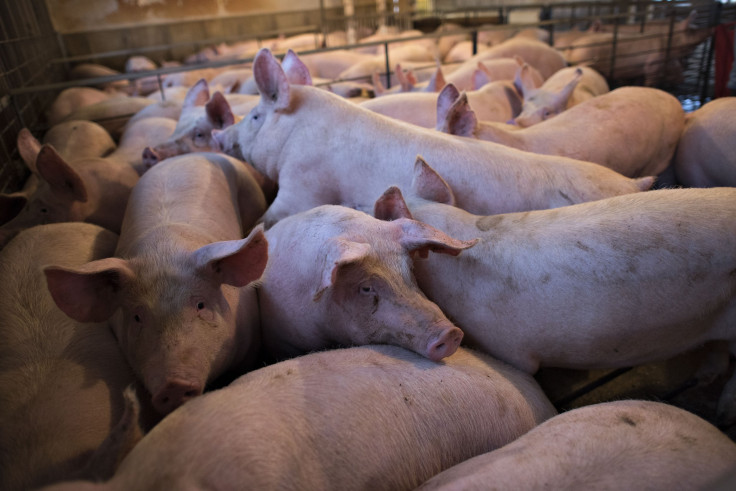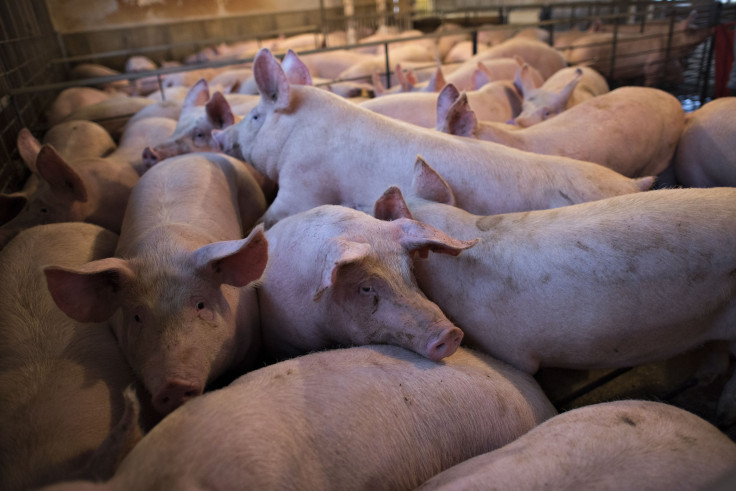Hog Farms Spray Pig Urine, Feces Into Air Around North Carolina's Black Communities

Residents in North Carolina are fighting back against one of the state's most prominent industries: hog farming. But the legislation may not be on their side — a group of lawmakers in the state passed House Bill 467 last week, legislation that limits how much residents can collect in damages from hog farms.
Hog farms in North Carolina dispose of pig feces and urine by spraying it, untreated, into the air where residents live. In response, nearly 500 of those residents, mostly African Americans from eastern North Carolina, brought a class action suit against Murphy-Brown, the state's largest producer of hogs. The lawsuit has now made its way to federal court.
Residents have said the process of waste disposal has caused health problems among those who live there, not to mention the resulting smell limits their ability to be outside. The urine and feces produce chemicals like methane and ammonia, which smell akin to rotten eggs, Naeema Muhammad, organizing co-director for the North Carolina Environmental Justice Network, told Democracy Now. And it's not just in the air.
"[People] have been forced off of their wells, because they were seeing remnants of the waste in their well waters by the coloring and odors coming out of their well water," Muhammad said.
Residents said the odors caused immediate headaches, gagging and other health problems and said they couldn't even open their windows.
"These claims are at best enormous exaggerations and at worse outright lies," North Carolina Rep. Jimmy Dixon, who introduced House Bill 467, said during a hearing about the legislation. "Is there some odor? Yes. But I would like you to close your eyes and imagine how ham and sausage and eggs and fried chicken smell."
Much of the waste disposal affects low-income residents and black communities.
"It can, I think, very correctly be called environmental racism or environmental injustice that people of color, low-income people bear the brunt of these practices," Steve Wing, associate professor of epidemiology at the University of North Carolina's Gillings School of Public Health, said in a video of an investigation into Smithfield Foods factory farms.
"I shut my hog operation down, and I got out of it. And I couldn't — I just couldn't do another person that way, to make them smell that," Don Webb, a former pig factory farm owner, told Democracy Now. "I've seen the little children that say, 'Mom and daddy, why do we got to smell this stuff?' You get stories like, 'I can't hang my clothes out.' Feces and urine odor comes by and attaches itself to your clothes."
HB 467, or the Agriculture and Forestry Nuisance Remedies bill, was passed by both houses of the North Carolina Legislature and was on its way to be signed by the governor. The bill would prevent people from recovering damages like those for healthcare bills and pain and suffering. Many have urged the governor to veto the legislation.
"Unfortunately, residents of eastern North Carolina know this smell well: This time it's the stink of foreign corporate profit at the expense of our natural resources and communities," Dan Crawford, director of governmental relations for the North Carolina League of Conservation Voters, said in a statement. "Residents have a right to defend and protect their families through democratic legal channels. It's despicable that the bill's sponsors attempt to equate the long-term suffering of their constituents to a 'nuisance' that can be silenced by a foreign entity."

© Copyright IBTimes 2025. All rights reserved.






















